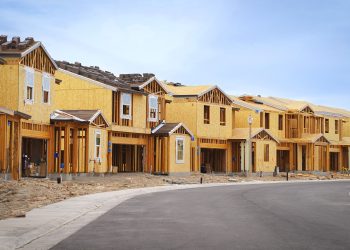RISMedia, June 1 2011—The National Association of REALTORS® supports a secondary mortgage market model with some level of government participation that would protect taxpayers and ensure that creditworthy consumers have access to affordable mortgage capital in all markets at all times.
That is the message delivered recently by NAR President Ron Phipps during a Senate Banking, Housing and Urban Affairs Committee hearing.
“As the leading advocate for homeownership, REALTORS® agree that the existing housing finance system failed and that reforms are needed; however, those reforms must be done in a methodical, measured and comprehensive effort based on practical market experience,” says Phipps. “We applaud the committee’s caution as you continue to discuss this very important and complex issue.”
In his testimony, Phipps urges support for comprehensive reform of the government-sponsored enterprises (GSEs) Fannie Mae and Freddie Mac, which remain critical to ensuring mortgage liquidity, and expressed concern over recently proposed legislation that takes a piecemeal approach and could increase uncertainty in the housing market, which is still struggling to recover.
To ensure a viable secondary mortgage market going forward, Phipps says that private capital must return to the housing finance market and the government’s involvement needs to be reduced; however, full privatization is not a viable option.
“There are strong negative repercussions for relying solely on private capital to form the foundation of the housing finance system. After the housing downturn, private mortgage capital became nearly nonexistent, and without the GSEs, qualified borrowers would not have had access to the funds required to purchase a home. A government backstop is critical to ensure a continual flow of mortgage liquidity and the long-term viability of the housing market,” Phipps says.
He adds that in a fully private market, financial institutions with FDIC-backed deposits would focus more on optimizing their profits in a noncompetitive banking industry, and potentially fostering new, risky mortgage products that place taxpayers at risk, rather than products that would be in the best interests of consumers and the nation’s economy. That could lead to the end of long-term fixed rate loan products, like the 30-year fixed rate mortgage, and drastically raise the cost of mortgage capital for millions of American consumers.
Phipps also testified about another important issue that will dramatically impact the future of housing finance—the proposed risk retention regulation under the Dodd-Frank Act, which requires lenders that securitize mortgage loans to retain 5% of the credit risk unless the mortgage is a qualified residential mortgage (QRM).
“A poor QRM policy that focuses on high downpayment requirements rather than a variety of traditional safe, well underwritten products will exclude hundreds of thousands of buyers from homeownership, slowing economic recovery and hampering job creation,” says Phipps. “REALTORS® support a reasonable and affordable cash investment coupled with quality credit standards, strong documentation and sound underwriting; but higher downpayments do not have a meaningful impact on default rates.”
He also expressed strong support for making permanent the GSE and FHA mortgage loan limits that are currently in place and set to expire later this year. Phipps said that in today’s real estate market, lowering the loan limits will restrict liquidity and make mortgages more expensive for households nationwide. More than 612 counties in 40 states and the District of Columbia will see an average decline of $50,000 in loan limits in their area.
“REALTORS® look forward to working with Congress and our industry partners to design a secondary mortgage model that will best serve our nation today and into the future,” says Phipps.
The National Association of REALTORS®, “The Voice for Real Estate,” is America’s largest trade association, representing 1.1 million members involved in all aspects of the residential and commercial real estate industries.
For more information, please visit www.realtor.org.










